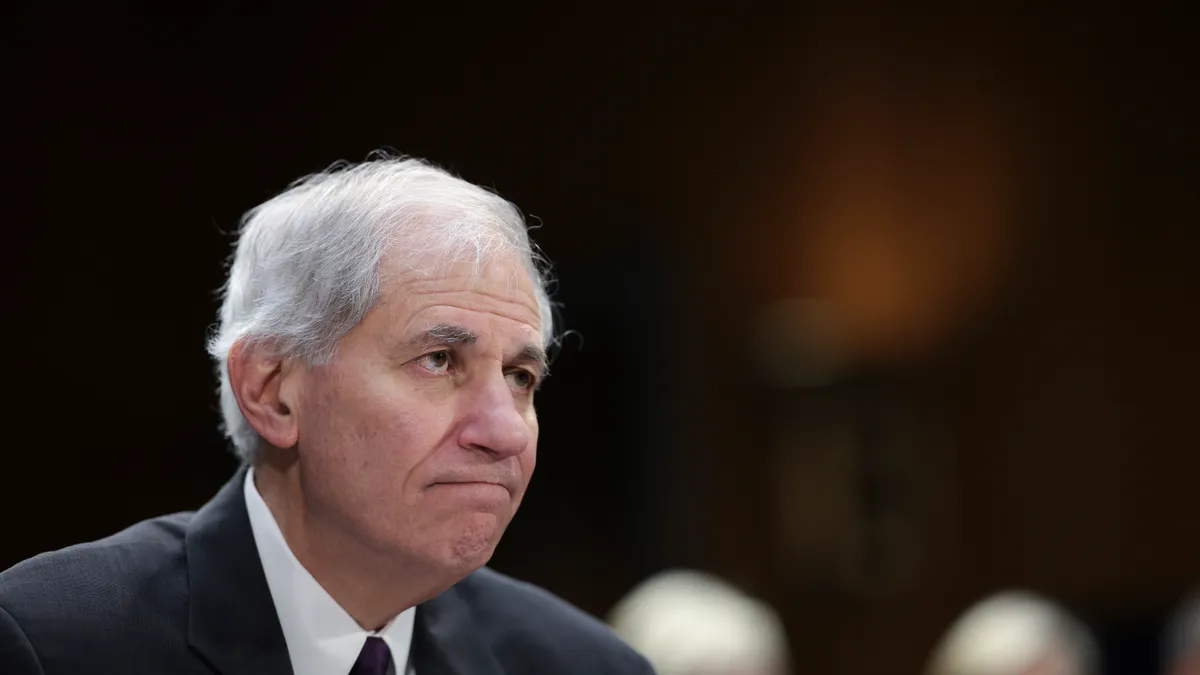Banks with total assets of more than $50 billion would pay more than 95% of a special fee aimed at making up a $15.8 billion hit to the Federal Deposit Insurance Corp.’s Deposit Insurance Fund in the wake of several bank failures, according to a proposal the regulator issued Thursday.
Under the proposal, which the FDIC board approved, banks with total assets of less than $5 billion would not be subject to the special assessment, the FDIC said.
The proposal follows regulators’ decision to backstop the uninsured deposits of Silicon Valley Bank and Signature Bank, regional lenders that collapsed in March.
In an attempt to recover losses to the FDIC’s DIF, the regulator’s proposal would levy an annual special assessment rate of 12.5 basis points to banks’ estimated uninsured deposits as of Dec. 31.
The regulator estimated 113 banks would be subject to the fee, while more than 4,000 smaller institutions would be spared.
The FDIC’s special assessment proposal is subject to a 60-day comment period. If the rule is adopted, the assessment would be collected over eight quarters, beginning in June 2024, the FDIC said.
Under the proposal, the first $5 billion in uninsured deposits would be subtracted from the assessment base, a measure that would essentially shield the smallest banks from the fee, the regulator said.
“The proposal applies the special assessment to the types of banking organizations that benefited most from the protection of uninsured depositors, while ensuring equitable, transparent, and consistent treatment based on amounts of uninsured deposits,” FDIC Chair Martin Gruenberg said in a statement accompanying the proposal.
The proposal will come as welcome news to community banks, which have called for the FDIC to exempt small lenders from the special fee.
“Community banks and their customers shouldn’t have to pay for the miscalculations and speculative practices of large financial institutions like SVB and Signature,” Independent Community Bankers of America CEO Rebeca Romero Rainey wrote in a letter to Gruenberg in April.
Subject to change
The FDIC estimated the proposed special assessment would result in an average one-quarter reduction in income of 17.5%.
Under the proposal, a bank with $10 billion in uninsured deposits would pay $6.25 million a year over a two-year period, officials estimated during a media briefing.
During the call, FDIC officials also noted certain circumstances could result in adjustments to the special assessment as loss estimates change.
As with all failed banks, receiverships and cost estimates are adjusted periodically as assets are sold, liabilities are satisfied and receivership expenses are incurred, FDIC officials said.
FDIC officials had originally estimated the collapse of SVB and Signature would result in a $22.5 billion hit to the FDIC’s DIF.
Officials unveiled a revised $18.8 billion figure. The $15.8 billion that the FDIC aims to recover through the proposed special assessment represents uninsured deposits.
The FDIC said the estimates in its proposed rule exclude First Republic Bank, which was taken over by the FDIC and sold May 1 to JPMorgan Chase.
The FDIC estimated the San Francisco-based bank’s collapse, the second-largest bank failure in U.S. history, would cost the DIF $13 billion.















